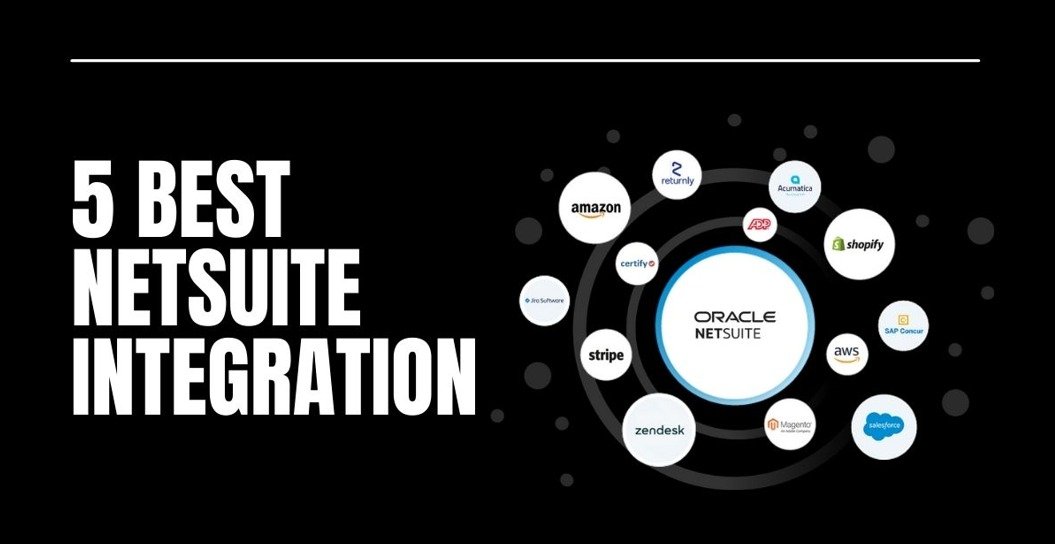In the digital age, businesses are increasingly integration with netsuite leaning toward integrated systems to streamline operations and enhance productivity. Among the most powerful and widely adopted enterprise resource planning (ERP) solutions is NetSuite. Developed by Oracle, NetSuite ERP offers cloud-based software designed to manage all key business functions in a unified system—from accounting and finance to supply chain, CRM, and e-commerce. However, to unleash the full potential of NetSuite, integrating it with other applications in the business ecosystem is crucial. This blog explores the what, why, and how of NetSuite ERP integration, emphasizing its importance for modern organizations.
What is NetSuite ERP Integration?
NetSuite ERP integration refers to the process of connecting NetSuite with other business systems—such as CRM platforms (like Salesforce), e-commerce sites (like Shopify), payment gateways (like PayPal or Stripe), and logistics providers (like FedEx). This integration ensures that data flows seamlessly between systems without manual intervention. For instance, when a customer places an order on an e-commerce site, the information can automatically sync with NetSuite for inventory checks, order processing, and financial accounting. By creating this interconnected network of software, businesses can significantly enhance operational agility.
The Need for Integration in Modern Business
The modern business landscape demands agility, accuracy, and automation. Siloed systems often lead to data inconsistencies, redundant manual entry, and delayed decision-making. NetSuite ERP by itself is powerful, but when isolated, it cannot deliver the end-to-end automation required in today’s fast-paced environment. Integration is the bridge that connects NetSuite with third-party tools, enabling a single source of truth. This centralization reduces errors, improves data accuracy, and enhances collaboration across departments—ultimately resulting in better customer service and quicker time-to-market.
Common Systems Integrated with NetSuite
NetSuite ERP is commonly integrated with a wide variety of platforms depending on the industry and operational needs. Customer Relationship Management (CRM) tools like Salesforce are often integrated to ensure a smooth handoff between sales and finance. E-commerce platforms like Magento, WooCommerce, and Shopify connect with NetSuite for real-time inventory updates and streamlined order fulfillment. Human Resource Management Systems (HRMS) and Payroll solutions like ADP can sync with NetSuite to centralize employee data and financial reporting. Furthermore, Business Intelligence (BI) tools like Tableau and Power BI pull data from NetSuite to provide visual analytics for decision-makers.
Benefits of NetSuite ERP Integration
The benefits of integrating NetSuite ERP into your business ecosystem are extensive. First and foremost, it enhances data visibility across departments, making it easier to generate accurate reports and analytics. It also leads to increased efficiency, as repetitive tasks like data entry are automated. Businesses also benefit from real-time updates, ensuring that everyone from the sales team to the finance department works off the same data. Moreover, integration improves customer experience by ensuring faster order processing, accurate inventory levels, and timely communication. All these advantages contribute to cost savings and better scalability.
Methods of Integration
There are several approaches to integrating NetSuite ERP, and the choice depends on your business’s size, complexity, and existing infrastructure. One popular method is using middleware or integration platforms, such as Dell Boomi, Celigo, Jitterbit, or MuleSoft. These tools act as intermediaries that connect NetSuite with other systems using pre-built connectors and APIs. Another method is through custom API development, where developers create tailored solutions to meet unique business requirements. NetSuite also provides SuiteTalk Web Services, a SOAP-based API, and RESTlets, which are REST-based scripts that allow deeper customization for integration.
Challenges in NetSuite ERP Integration
While integration brings substantial benefits, it also comes with its set of challenges. One of the primary hurdles is data mapping, which involves aligning data formats and structures between systems. Misalignment can result in data corruption or loss. Security is another major concern, as integrating multiple systems opens up potential vulnerabilities. Ensuring robust encryption and access control is essential. Businesses must also consider scalability—the integration solution should be flexible enough to accommodate future growth and additional applications. Lastly, ongoing maintenance and support are critical to ensure that integrated systems continue to function smoothly as software updates roll out.
Best Practices for Successful Integration
To ensure a successful NetSuite ERP integration, it’s important to follow best practices. Start with a clear strategy and objectives—define what you want the integration to achieve and what systems need to be connected. Choose the right integration method based on your technical capabilities and business needs. Conduct thorough data audits before integration to identify and correct inconsistencies. Always perform testing in a sandbox environment before going live. Lastly, invest in user training and documentation to ensure your teams are well-equipped to leverage the new system. Monitoring and regular updates are also essential to keep the integration running effectively.
Real-World Use Case
Consider a mid-sized online retailer that uses Shopify for e-commerce, Salesforce for CRM, and NetSuite ERP for backend operations. Prior to integration, the retailer manually exported orders from Shopify, entered them into NetSuite, and then updated customer details in Salesforce. This not only consumed time but also increased the risk of errors. After implementing a middleware solution, all three platforms were synchronized. Orders placed on Shopify automatically updated inventory in NetSuite, triggered invoices, and synced customer data with Salesforce. The result was faster order processing, better customer satisfaction, and a 25% reduction in administrative overhead.
Conclusion
netsuite integration is more than a technical enhancement—it’s a strategic necessity for businesses aiming to stay competitive and agile. Whether you’re a startup looking to automate basic processes or an enterprise managing complex operations, integrating NetSuite with other business systems can unlock new levels of efficiency, accuracy, and scalability. While challenges exist, careful planning, the right tools, and best practices can ensure a smooth and successful integration journey. As digital transformation continues to shape industries, a well-integrated ERP system like NetSuite stands as the backbone of operational success.
